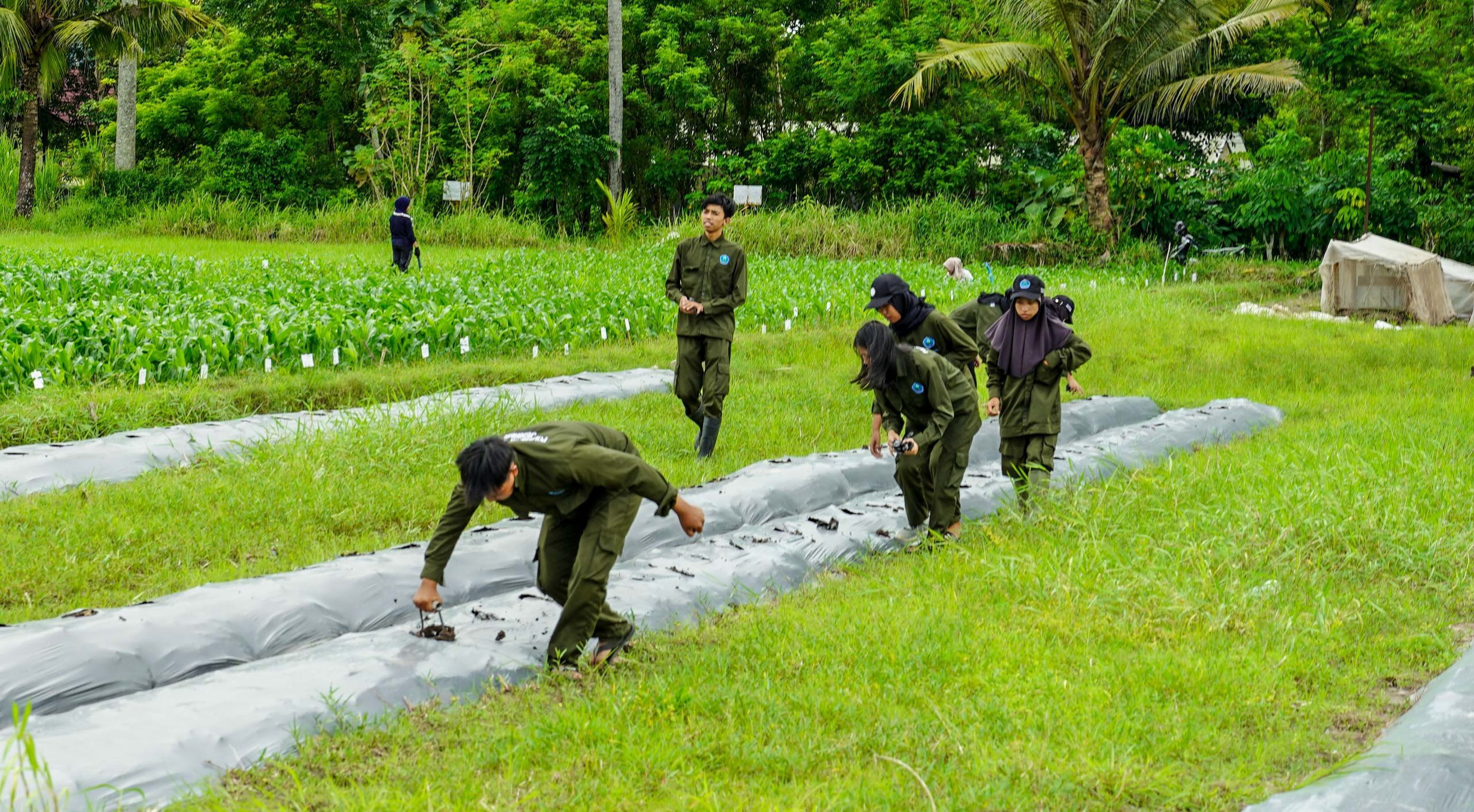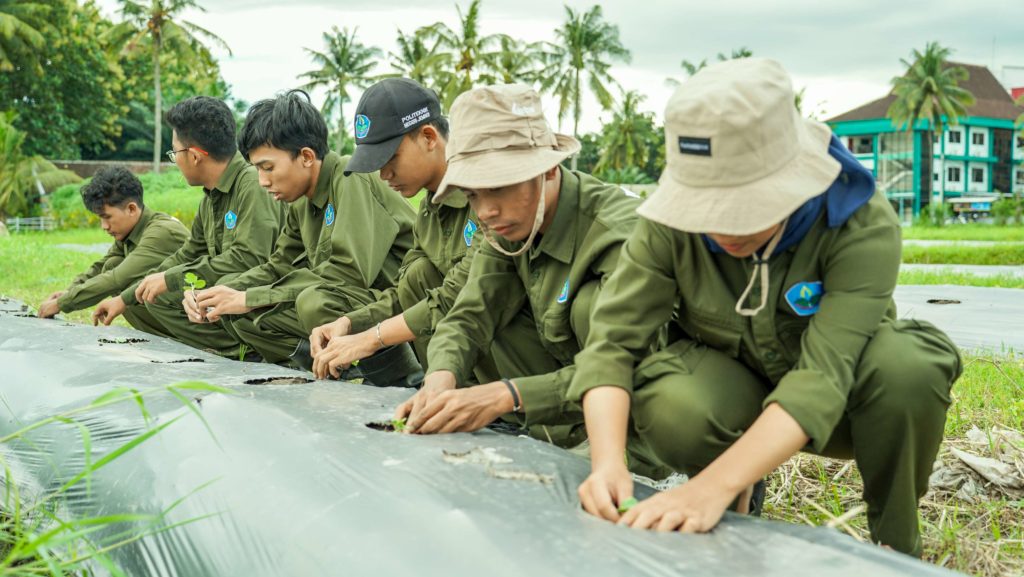

Students from the Horticultural Crop Production Study Program have carried out a Project-Based Learning (PBL) activity focusing on watermelon cultivation. This program is a collaboration between fourth-semester and second-semester students. The initiative aims to provide students with hands-on experience in applying horticultural knowledge, from the early stages of cultivation to the marketing of harvested produce.
Viola Christianti, one of the participating students, explained that this activity offers numerous benefits to students.
“What we gain from planting watermelon seeds is, first, experience and knowledge. Second, we acquire insights into marketing, and third, we learn about product sales in the horticultural industry,” Viola stated.
In this project, students cultivated two watermelon varieties: Amara variety, used as the female seed, and Dewangga variety, used as the male seed. The cultivation process began with seed preparation, where watermelon seeds were germinated until they were ready to be transplanted into the field. Choosing high-quality seeds is a crucial initial step to ensure the growth of healthy and productive plants.
Once the seedlings were ready, students prepared the land by installing plastic mulch to maintain soil moisture and reduce weed growth. This process also involved applying base fertilizers to provide sufficient nutrients for the plants from the beginning of their growth cycle.
During the maintenance phase, students were responsible for regular watering, fertilization, and pest and disease control to ensure optimal plant growth. Upon reaching the harvest period, the watermelons were then marketed to various markets or directly to consumers. This provided students with a practical understanding of marketing strategies and agricultural business management.
Anggita Rizky Fadilah, S.Stat., M.Si., the program supervisor, stated that PBL is designed to give students direct experience in implementing sustainable horticultural practices. She emphasized that this activity is not only focused on the technical aspects of farming but also aims to develop teamwork, project management, and marketing strategy skills.
“This PBL program aims to train students in applying sustainable horticultural farming. Additionally, it helps students develop communication and teamwork skills within a real work environment,” she explained.
The goal of this program is for students to not only acquire technical farming skills but also to understand the business and marketing aspects of the agricultural industry. Viola added that the hands-on experience gained from this practical course would be a valuable asset for students as they prepare to enter the workforce.
“Hopefully, through this practical course, we gain sufficient knowledge and skills for our future careers. Moreover, we learn about sales and marketing strategies that can be applied in the agricultural sector moving forward,” she concluded.
The PBL initiative serves as an innovative approach to agricultural education, where students not only learn theoretical concepts but also apply them directly in the field. As a result, they become more prepared to face industry challenges while contributing to the development of sustainable horticultural farming.
This program also proves that collaboration between students from different semesters creates a more dynamic and interactive learning environment. Through close teamwork, students can exchange experiences and deepen their understanding of modern agricultural practices.
With programs like this, it is hoped that more young individuals will become interested and prepared to advance the agricultural sector in the future, turning it into a promising business opportunity. (rda)